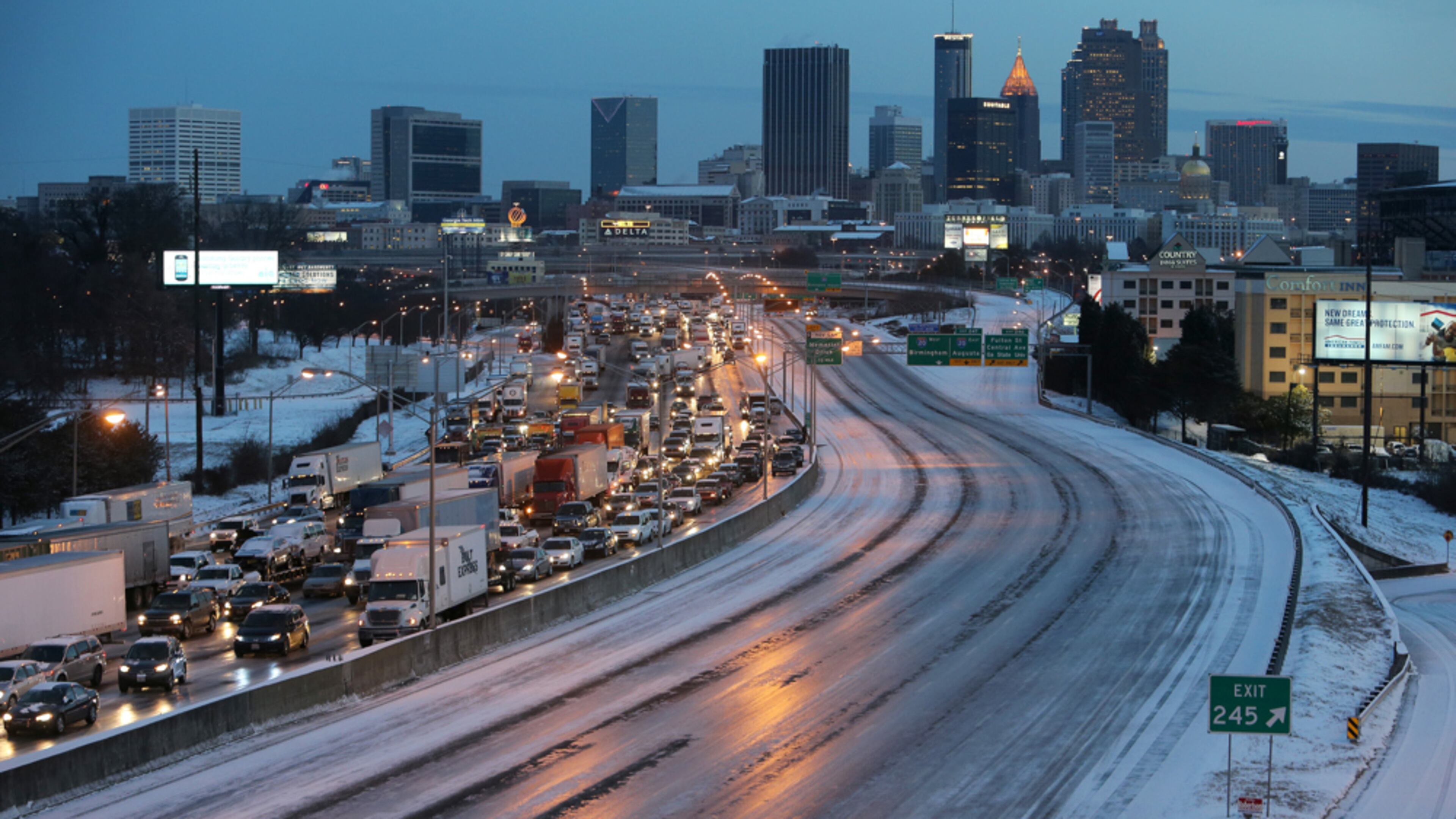Weather experts converge on Atlanta (no kidding)

How people respond to severe weather largely determines whether they stay safe and sound: That is a major theme of this week’s 94th annual conference of the American Meteorological Society.
And where better to talk about it than Atlanta?
Barely hours into Monday’s presentations, it was clear that the region’s “snow fiasco,” as one speaker branded it, is widely regarded as a textbook case of what not to do.
“There was a gap in communicating,” said Kim Klockow, a post-doctoral student in meteorology doing a fellowship in the U.S. Senate. “The forecasters had knowledge that did not translate to decision-makers.”
Terminology that is crystal clear to meteorologists may confuse non-scientists, said Bryan Norcross of The Weather Channel. Case in point: The day before the snow hit, the National Weather Service changed its forecast for metro Atlanta from a winter storm watch to a winter storm advisory. Many people apparently though the severity had been downgraded; the truth was just the opposite.
“They’re realizing they did not get the picture,” Norcross said.
As for the specific communication gaps that contributed to Atlanta’s recent debacle, National Weather Service director Louis Uccellini said he is awaiting the results of a review by Georgia officials on the state’s interaction with the weather service.
But he expressed a commitment to fixing anything that’s broken. “We would work with them as partners.”
Most of the weather experts on hand for the convention avoided blaming any one specifically for Atlanta’s woes. But many lamented the lack of communication and collaboration between weather forecasters, community decision-makers and the public. The resulting free-for-all left drivers stranded on the roads, children stranded at schools and top leaders, including Gov. Nathan Deal, facing intense scrutiny.
It’s critical to analyze how people process information, so it can be delivered to them in the most useful way, said John Cortinas of the National Oceanographic and Atmospheric Administration. “We need a better understanding of human behavior and the impact of weather events … so we can elicit the kind of response we need to have happen,” he told attendees at one session.
Striking a similar note, Jennifer Sprague, a senior adviser with the National Weather Service, said meteorologists “have to understand the societal impact,” so officials can make the right decisions and people can understand the risks.
For example, the public needs to know not only that a given storm is likely to deposit several inches of snow, but that it could bring down power lines, topple tree limbs and make driving a bloody mess.
Atlanta, unavoidably, was a poster child of sorts in Monday’s presentations, but it wasn’t alone.
One speaker, for example, pointed to the poor use of weather sirens before a tornado hit Joplin, Mo. Because officials had been using the sirens to alert the public to severe thunderstorms as well as tornadoes, many people did not take the warning as seriously as they should have.
Atlanta’s experience notwithstanding, several experts spoke optimistically of the potential to better communicate harsh weather and its consequences in an age of social media and mobile alerts. That is, they said, if they can communicate in a way the public understands and trusts within Twitter’s 140-character limit.
Here in Atlanta, some improvements are already under discussion. Garry Harris of the Atlanta-based Center for Sustainable Communities spoke of a planned town hall meeting dedicated to improving planning and preparation for severe weather. A few hundred people have signed up for the event, he said, including representatives from the Atlanta City Council and the National Weather Service.
The only problem: The town hall was planned for last Saturday; it was cancelled due to the storm.

